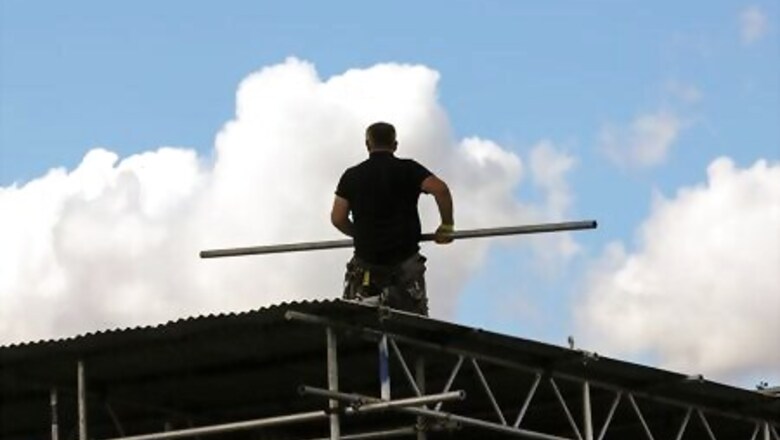
views
LONDON Britain’s construction industry grew at the fastest rate in almost five years in July as business picked up after COVID-related shutdowns, survey data showed on Thursday, mirroring a rapid rebound in manufacturing and parts of the services sector.
However, the sector has a long way to go before output returns to pre-COVID levels, and construction firms are still shedding jobs at one the fastest rates since the global financial crisis.
The IHS Markit/CIPS construction Purchasing Managers’ Index rose to 58.1 in July from 55.3 in June – slightly above economists’ forecasts in a Reuters poll and a sharp rebound from April’s record low of 8.2.
“Survey respondents noted a boost to sales from easing lockdown measures across the UK economy and reduced anxiety about starting new projects. However, new work was still relatively thin on the ground,” IHS Markit’s economics director, Tim Moore, said.
Taylor Wimpey, one of Britain’s biggest house builders, said last week it expected to complete 40% fewer homes this year than in 2019.
The index represents the pace of growth, not the level of production, and the sector still has a long way to recover after construction output collapsed by more than 40% in March and April, according to official data.
Construction accounts for about 6% of Britain’s economy.
July’s all-sector PMI, which includes the much larger services and manufacturing sectors, rose to its highest since June 2015 at 57.1, following similarly robust services and manufacturing PMIs on Monday and Wednesday.
The acceleration in construction was dominated by a bounce in house building, with commercial and civil engineering projects slower to get off the ground, and new order growth has not caught up with the robust pace seen in February.
The employment index fell back to 35.4 from June’s 41.5 – representing one of the steepest drops in job numbers since the 2008-09 financial crisis.
Disclaimer: This post has been auto-published from an agency feed without any modifications to the text and has not been reviewed by an editor

















Comments
0 comment